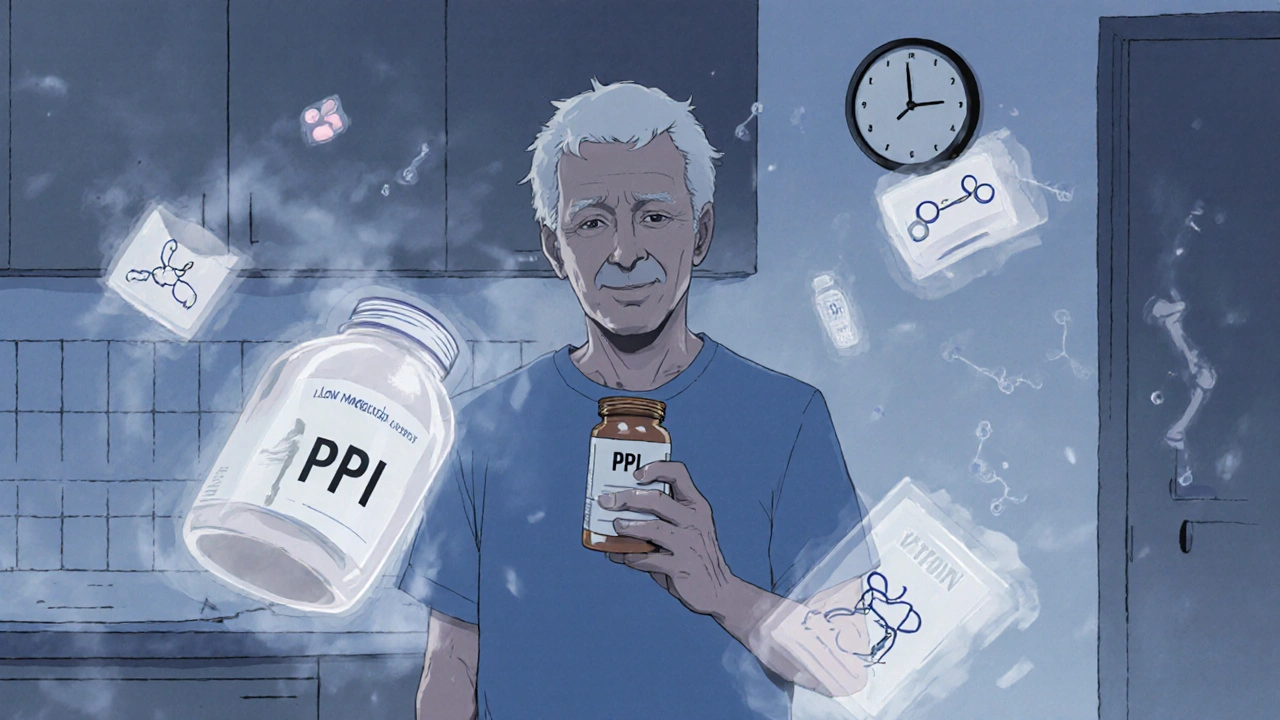Proton Pump Inhibitors: What They Are, Risks, and Real-World Alternatives
When you hear proton pump inhibitors, a class of drugs that block acid production in the stomach. Also known as PPIs, they’re among the most prescribed medications in the world for heartburn, GERD, and ulcers. But while they work fast, using them long-term isn’t as simple as popping a pill daily. Many people take them for months or years without realizing the side effects can be just as troubling as the symptoms they’re meant to treat.
Proton pump inhibitors reduce stomach acid by targeting the cells that produce it — the proton pumps. That sounds good until you learn that stomach acid isn’t just about discomfort. It’s your first line of defense against bad bacteria, helps break down food, and lets your body absorb key nutrients like calcium, magnesium, and vitamin B12. Long-term use has been linked to bone thinning, kidney issues, and even a higher risk of infections like C. diff. It’s not a myth — studies from the FDA and major medical journals show these risks aren’t rare. And yet, doctors still prescribe them for years, often without a clear exit plan.
What’s more, many people start PPIs for mild heartburn, then never stop. They don’t realize that stopping suddenly can cause rebound acid hypersecretion — meaning your stomach overcompensates and produces even more acid than before. That’s why so many feel worse when they try to quit. The real solution isn’t just switching to another PPI. It’s understanding what’s causing the acid in the first place: diet, stress, hiatal hernias, or even lying down too soon after eating. Some people find relief with simple lifestyle changes, while others need safer, targeted treatments like H2 blockers or even dietary therapy.
The posts below dive into exactly this: how PPIs interact with other meds, what the real-world side effects look like after years of use, and how people are finding alternatives that work without the risks. You’ll find comparisons with other acid-reducing drugs, real stories about withdrawal, and evidence-backed ways to reduce dependence. Whether you’re on PPIs now, thinking about starting them, or trying to get off them, this collection gives you the facts you won’t get from a drug label.

Proton Pump Inhibitors: Long-Term Risks and When to Stop
Proton pump inhibitors help with heartburn and ulcers, but long-term use can cause serious side effects like bone fractures, low magnesium, and B12 deficiency. Learn when to stop and how to do it safely.
